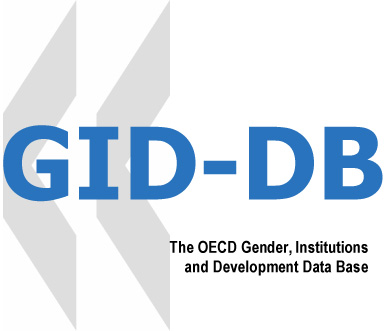GID-DB variables: discriminatory family code

The Gender, Institutions and Development Database (GID-DB) is the only database providing researchers and policymakers with key data on gender-based discrimination in social institutions. Covering 160 countries, the GID-DB contains comprehensive information on legal, cultural and traditional practices that discriminate against women and girls. The GID-DB covers five sub-indices including discriminatory family code.
Discriminatory family code captures social institutions that limit women’s decision-making power and undervalue their status in the household and the family. These formal and informal laws, social norms and practices co-exist in different types of legal systems including civil or common law, customary law, and religious laws and cover areas such as marriage, parental authority and inheritance. Women’s decision-making power and status determine both their ability to choose their own development pathways and the well-being of their families.
The GID-DB includes the following variables under the discriminatory family code sub-index:
- Legal age of marriage
- Early marriage
- Parental authority during marriage
- Parental authority after divorce
- Inheritance rights for widows
- Inheritance rights for daughters
- Divorce
- Unpaid care work
See the enitre GID-DB here
Learn about the other sub-indices:


